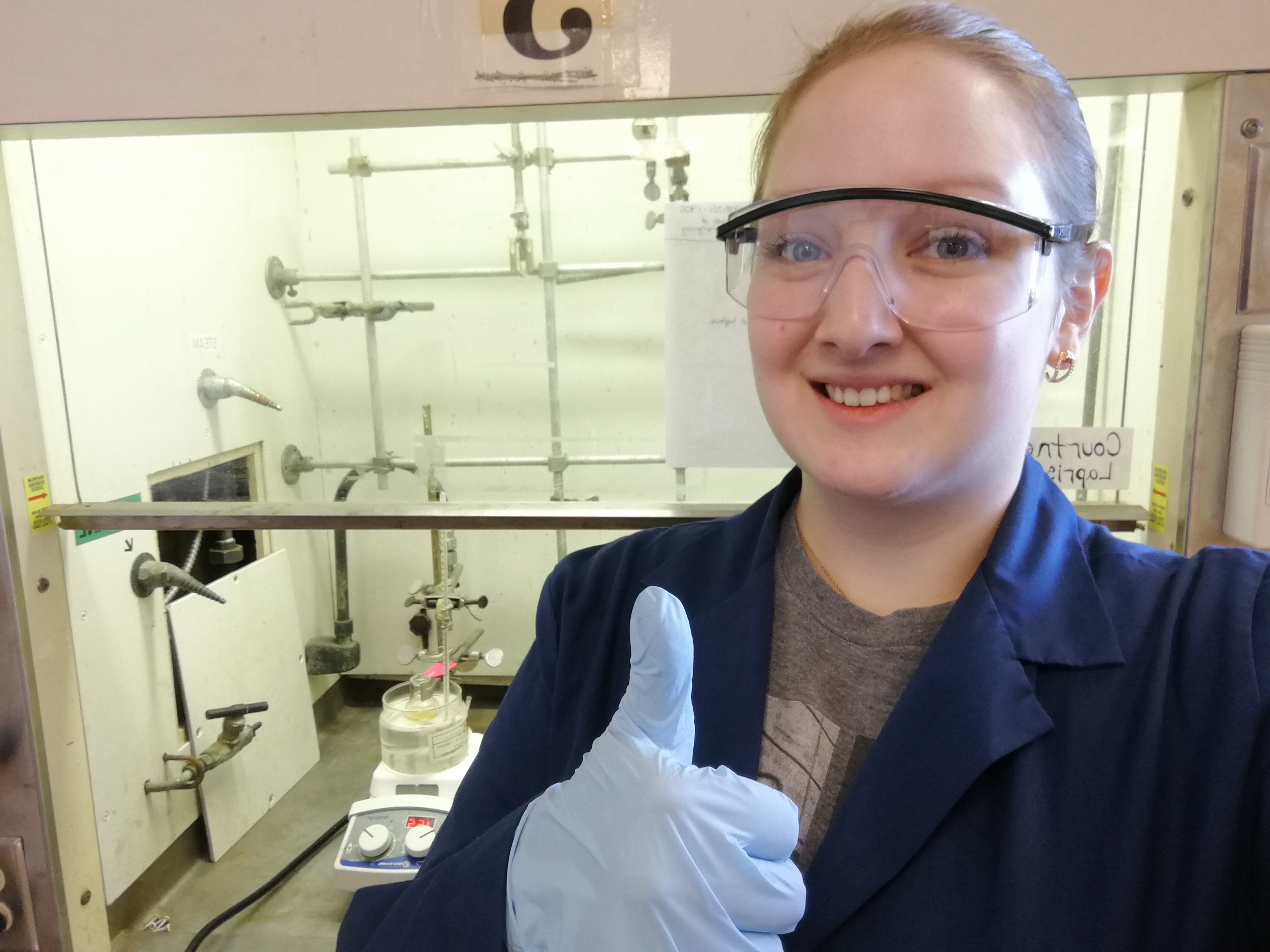So we’re back into the swing of things in the Winter semester. It’s hard to believe that it’s already February, meanwhile I’m still writing 2017 in documents and notes. Time sure flies when you’re busy! When I last wrote a blog post, I was only a few months into my Master’s program here at Memorial. I was busy focusing on the course I was taking, reading more papers than I could count, and was a big ball of stress. Every once in a while, when things get extra busy, it’s easy to crumble under the stress if you don’t have a good method to cope with it. What’s my trick? I have a great support system both at MUN and at home. Here at MUN I’ve made some new friends in my research group who I can vent my frustrations to when I don’t know how to do something, or an experiment doesn’t go quite as planned. At home, I have my wonderful boyfriend who, even though he’s an engineer, he tries to understand my chemistry problems and help me deal with them. Without these people, I’m sure I’d be more of a mess than I already am.
Now that I’m into my second semester of my program, my life has naturally fallen into a nice rhythm. Since my last post, I’ve done a lot more lab work. My current research involves turning purified waste fish-oil, provided by some lovely engineers here at MUN, into new materials. The goal of my research is to find a sustainable method to replace currently used materials that are not sustainably produced or use hazardous methods in their production. To date, my work has involved using pure chemicals that are present in the fish-oil in order to test and optimize a method. The next step will be to incorporate real fish-oil samples (which I made the mistake of sticking my nose in) and test my methods. Everything has gone relatively smooth so far, with only minor hiccups and small analyses that need to be re-performed. Throwing real fish-oil into the mix will make things slightly more complicated but hopefully all goes well. The fish-oil sample is currently waiting to be analyzed and I hope that it works out, but sometimes things go wrong. You hopefully learn what not to do and move on from your mistakes, or maybe it’s a bigger problem that needs some investigating to figure out. Either way, it’s not a big deal and everyone runs into problems in their research. That’s the fun part about science and doing research though, you need to learn how to do things and sometimes you learn from the unexpected results. It’s never a failure if you learn from it.
Another part of doing research is finding things in the lab. It doesn’t sound like much of a problem, but when you’re first starting out and can’t even find the glassware you need, it becomes a bit of a problem. When I first started out, I would ask whoever was in the lab where to find a certain thing, but since I felt like I was always pestering everyone, I started going on my own little adventures. A few days a week when I would be the first one to get into the office, I would go into the lab and explore to my hearts content. I poked around in most of the drawers in our two labs and tried to get used to where the important stuff is located. It’s the best way to remember where things are located, and sometimes you come across something fun, like a brand new bag of disposable pipette bulbs that you can borrow from and keep a couple in your lab coat pocket. Don’t be afraid to poke around drawers or ask people where things are. They were all just as lost at one point, and I’m sure they don’t mind helping you out.
Another part of graduate school that I’m finding especially enjoyable are the courses you get to take. In my undergraduate program, the course material was always general and glossed over material that I wanted to learn more about. Course offerings in graduate programs are highly tailored towards those special topics. Last semester I had the opportunity to take a great Green Chemistry course by my supervisor Dr. Fran Kerton, and I learned so much. This course opened my eyes to wasteful chemicals practices that are traditionally used. I learned how to read scientific papers and pick apart their method to notice the unsustainable practices that they leave out and bury in the Electronic Supplementary Information. Scientists are tricky sometimes, and they don’t mention those litres of solvent they use to purify that one gram of solid they synthesized, making their method seem a little more appealing. This semester I’m taking a course by my other supervisor, Dr. Chris Kozak, in Organometallic Chemistry. While it’s a challenging course that requires lots of digging up old information from things I did in the third year of my undergrad, it’s useful and fun. Graduate school is a great way to learn more about special topics of your choosing. That’s what makes it so wonderful. You choose what you want to focus on, and no longer are you required to take courses you don’t want to take.
I hope you all enjoyed getting a glimpse into the life of a Chemistry graduate student, and keep reading each week to hear more from myself and the other wonderful graduate students participating in the graduate student blog.
Until next time…
~Courtney
